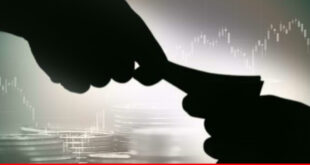Ben Packard, the vice president of Starbucks Coffee Company, once said: ‘on the journey to make our iconic coffee cups 100% recyclable, we quickly learned that developing recyclable material is just one part of the complex equation. We had to consider the entire lifespan of the cup, including what happens after it leaves our customers’ hands. This required bringing together the entire system of stakeholders with expertise, the influence and the infrastructure to coordinate a fundamental shift, not only in our operations, but in the entire food packaging and recycling industries.’
Starbucks’ concept of corporate social responsibility (CSR) defines the management approach towards the society which in some way or the other is influenced by the product that an organization offers. Corporate responsibility doesn’t end with the sale of the product; in most of the cases it starts after the launching of the product and extends to a great number of years. Airbus has recently sold its first A-350 passenger aircraft to Qatar. The plane and its operations are likely to remain under the scanner for quite a number of years.
The concept of CSR is relatively new. In a way it is closely associated with the idea of societal marketing, which focuses more on society welfare and better quality of life than on the single-point corporate agenda of “profit maximization.” It is also a deviation from the old market philosophy of “buyer beware” In today’s free market economy, CSR is not given weight by the corporate bosses simply out of their love for the society. It is the force of law and regulatory regime that makes them behave. It is more a matter of compulsion than ethics. Environmentalists’ pressure to follow anti-pollution laws makes big corporations to set sizeable budgets for waste disposal and society-friendly engagements.
In today’s capitalistic system, big corporations are usually ranked on the basis of sales, profits, assets and market value. Forbes’ list of best 25 companies for 2014 mostly includes banks and oil corporations. But when ranked on the basis of CSR, an altogether different list emerges. This shows that banks and oil companies are the most socially irresponsible organizations. And this is not surprising, as banks are the most lethal weapons of the ruthless capitalistic system, while oil corporations are the political vehicles of big powers – as someone has said: ‘where there is oil, there is blood.’
|
List showing Forbes top companies for 2014, selected on the basis of sales, profits, assets, and market value
|
|||||
|---|---|---|---|---|---|
|
RANK
|
NAME OF THE COMPANY
|
RANK
|
NAME OF THE COMPANY
|
RANK
|
NAME OF THE COMPANY
|
|
1
|
Ind. & Com Bank of China
|
9
|
Bank of China
|
17
|
British Petroleum
|
|
2
|
China Construction Bank
|
10
|
Petro China
|
18
|
Chevron
|
|
3
|
Agricultural Bank of China
|
11
|
Royal Dutch Shell
|
19
|
Volkswagen group
|
|
4
|
JPMorgan Chase
|
12
|
Toyota Motors
|
20
|
Wal-Mart Stores
|
|
5
|
Berkshire Hathaway
|
13
|
Bank of America
|
21
|
Gazprom
|
|
6
|
Exxon Mobil
|
14
|
HSBC Holdings
|
22
|
Samsung Electronics
|
|
7
|
General Electric
|
15
|
Apple
|
23
|
AT & T
|
|
8
|
Wells Cargo
|
16
|
Citigroup
|
24
|
BNP Paribas
|
High-profits-earning banks and oil companies have a history of social irresponsibility. Even in the world of lax controls, they are found guilty of involvement in illegal and unsocial practices. Banks and oil companies have recently been made to pay multibillion dollars in penalty. Moreover, international banks are guilty of holding hundreds of billions of dollars of corrupt world rulers who have made fortunes by depriving their countries of healthcare and education facilities besides pushing their people below the poverty line. The concept of CSR will get a tremendous boost if these banks take initiative and return all such money to the respective countries. This will be a great justice to the emerging economies like Pakistan that have great economic potential but lag behind because of high debts and low growth.
|
Table showing Forbes top companies for 2012, selected on the basis of CSR
|
|||||
|---|---|---|---|---|---|
|
RANK
|
NAME OF THE COMPANY
|
2012 RAPTRAK PULSE SCORE
|
S.N
|
NAME OF THE COMPANY
|
2012 RAPTRAK PULSE SCORE
|
|
1
|
BMW
|
80.08
|
14
|
Panasonic
|
75.71
|
|
2
|
Sony
|
79.31
|
15
|
Nike
|
75.43
|
|
3
|
The Walt Disney Co
|
78.92
|
16
|
Intel
|
75.42
|
|
4
|
Daimler (Mercedes Benz)
|
78.54
|
17
|
Michelin
|
75.32
|
|
5
|
Apple
|
78.49
|
18
|
Johnson & Johnson
|
75.17
|
|
6
|
Google
|
78.05
|
19
|
IBM
|
75.08
|
|
7
|
Microsoft
|
77.98
|
20
|
Ferrero
|
74.90
|
|
8
|
Volkswagen
|
77.04
|
21
|
Samsung Electronics
|
74.81
|
|
9
|
Canon
|
76.98
|
22
|
Honda Motor
|
74.80
|
|
10
|
Lego Group
|
76.35
|
23
|
L’Oreal
|
74.35
|
|
11
|
Adidas Group
|
76.00
|
24
|
Nokia
|
74.33
|
|
12
|
Nestle
|
75.88
|
25
|
Philips Electronics
|
74.33
|
|
13
|
Colgate Palmolive
|
75.75
|
.
|
.
|
.
|
It’s worth trying to find a bank or an oil company in the above list of companies selected on the basis of CSR. Reputation Institute has developed a similar list for the year 2014, selecting Microsoft for the top position. No doubt Bill Gates is known to have given billions in charity; nevertheless, James Perkins’ following words should not go unnoticed: ‘As a philanthropist, Bill Gates seems to be a man of impeccable integrity. His family had given nearly $30 billion to charity by 2008…However, the Bill and Melinda Gates Foundation has been severely criticized for investing its endowment in companies that are accused of contributing to poverty in the very Third World countries where the foundation’s stated goal is to relieve poverty. Such investments include pharmaceutical companies that refuse to sell their medicines to the developing world at appropriate prices and a variety of corporations that contribute heavily to pollution. The foundation’s response to public condemnation of these investments was to announce a review of its policies in 2007 and then to quietly issue a statement saying that its portfolio was based on maximizing returns, not judging corporate actions.
As a young founder and CEO, Gates had a reputation for brutally beating down competitors. He and Microsoft have been attacked in many countries for business practices that at best are morally questionable and at worst illegal.’
 PAGE Blog Business Weekly Magazine
PAGE Blog Business Weekly Magazine

